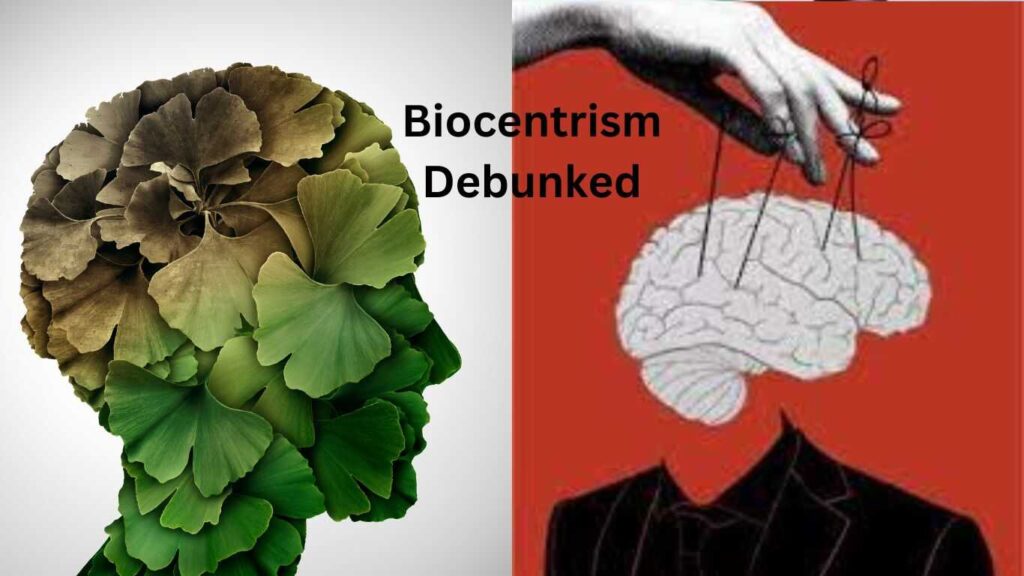Biocentrism, a principle proposed by Robert Lanza in his 2007 book “Biocentrism Debunked”: How Life and Consciousness Are the Keys to Understanding the Universe,” has ignited intriguing philosophical discussions by suggesting that existence and attention play an essential position in shaping the universe. However, it faces large skepticism in the medical network because of its lack of empirical evidence and its divergence from hooked-up medical concepts. This essay severely examines the middle ideas of biocentrism and addresses the counterarguments that assign its medical validity, losing mild on the controversy that surrounds this principle. “And find the answers to the question: Is Biocentrism debunked?
Know about Biocentrism
Biocentrism was developed by the scientist Robert Lanza, who stated that the primary driver of the universe is Biology. As per biocentrism consciousness, life, and the observer have a vital role in shaping reality. In simpler terms, biometrics tells us that our consciousness of it is the reason for the universe’s creation, and the normal materialist view of reality is false.
The Core Principles of Biocentrism
Biocentrism is constructed upon seven core standards:
- The universe is quality-tuned for lifestyles: Biocentrism posits that the physical constants of the universe appear precisely tuned to allow the emergence and continuation of lifestyles. This idea has led a few to impeach whether there is probably a deeper purpose or layout to the universe.
- Consciousness creates reality: In the biocentric view, our perceptions and attention shape the facts we experience. This precept demands situations, the perception of a goal, and external reality, suggesting that our subjective stories have an impact on the world around us.
- Time and space are tools of the mind: According to biocentrism, time and space are not inherent elements of the universe however are instead constructs of human awareness. This idea challenges our conventional understanding of these fundamental concepts.
- The laws of physics are biocentric: Biocentrism indicates that the legal guidelines governing the universe are intimately linked to life and awareness, implying that the universe may have advanced to house life.
- The universe is inseparable from lifestyles: This principle asserts that existence and the universe are intertwined and can’t exist independently. It implies that the life of life is essential to the universe itself.
- Death is an illusion: Biocentrism proposes that demise isn’t always the giving up of awareness but a transition to a unique state. This concept challenges the conventional understanding of mortality and indicates a form of afterlife.
- The universe is an organic phenomenon: In the biocentric perspective, the universe is essentially a biological phenomenon, with life and recognition at its center. This attitude contrasts sharply with conventional cosmological perspectives.
Challenges to Biocentrism’s Validity

Biocentrism faces considerable challenges to its validity, often rooted in its loss of empirical support and its divergence from hooked-up scientific principles:
- Lack of empirical guide: Biocentrism’s imperative claims, such as the idea that recognition shapes truth, are tough to check scientifically, leading to a dearth of concrete evidence. The loss of empirical guidance has been a prime impediment to its popularity in the clinical network.
- Conflict with installed science: Many of the ideas of biocentrism seem to contradict properly set-up medical theories, consisting of the concept of a goal, the external reality that exists independently of aware belief. This increases concerns about its compatibility with current clinical know-how.
- Anthropocentric bias: Biocentrism has been criticized for its anthropocentric bias because it places human recognition in the middle of the universe. This bias can also limit the concept’s applicability to a broader cosmic context.
- Philosophical in place of medical: Biocentrism is frequently viewed as a philosophical or metaphysical concept as opposed to a systematic concept. It lacks testable predictions and falsifiability, important factors of scientific inquiry.
Arguments in Favor of Biocentrism
Addressing the Smooth-Tuning Issue
One of the fascinating factor of the universe is its astonishing precision in the creation of life. Biocentrism covers the explanation for this common tuning by suggesting the presence of multiverse, where each having their own unique system of laws for physical process. In this multiverse perspective the universe’s benefits are not because of some random chance, but rather crafted to preserve life. Since, consciousness can only take place in multiverse universe.
Bringing the Mind-Body Problem
Biocentrism offers a unique view of the mind-body problem that has been a perennial philosophical problem about what is the essence of consciousness as well as the physical body relationship.
The Observer Effect
Quantum mechanics has long baffled researchers with its duality of wave particles and the behavior of particles changing in the revert to the observation. Biocentrism coincides with the observed effect which suggests that the existence that observers have consciousness is fundamental to the behavior of particles. Although this interpretation isn’t without controversies within the scientific community, it has provoked fascinating debates about the connection between physical reality and consciousness.
Counterarguments to Biocentrism’s Principles

- Fine-tuning argument: The nice-tuning of the universe, which biocentrism attributes to the necessity of lifestyles, can also be defined by using the anthropic precept. This precept indicates that our lifestyles as observers inherently bias our belief of the universe’s suitability for life, without requiring a conscious layout.
- Consciousness and truth: The belief that focus creates truth contradicts the consistency of bodily laws and the existence of a shared, objective reality among individuals. The significant body of scientific know-how built upon these principles supports an outside truth impartial to personal notions.
- Time and area as intellectual constructs: While biocentrism posits that point and space are merchandise of human recognition, their existence is supported via numerous clinical observations and experiments. Concepts like relativity and spacetime have furnished practical, testable models for information about the universe.
- Biocentric legal guidelines of physics: The laws of physics seem to govern the universe consistently, no matter the presence or absence of life or awareness. This suggests that these laws aren’t inherently tied to lifestyles and consciousness.
- Universe and existence interdependence: The universe existed for billions of years before lifestyles as we are aware of it emerged, indicating that life is not a prerequisite for the lifestyles of the cosmos. This demands the concept that existence is fundamental to the universe itself.
- Death as a phantasm: While biocentrism proposes that focus can also persist beyond bodily dying, the cessation of organic capabilities is an established and discovered phenomenon. The concept of an afterlife remains a reminder rather than medical confirmation.
- Universe as a biological phenomenon: The vastness and complexity of the universe, with its multitude of non-organic components, advocate that it isn’t completely a biological phenomenon. The universe encompasses a wide range of bodily and cosmic phenomena that extend beyond the scope of life and attention.
Conclusion
Biocentrism affords a captivating and unconventional attitude to the nature of truth, hard-hooked-up clinical principles, and sparking philosophical discourse. It remains unanswered whether Biocentrism has been debunked or not. However, its lack of empirical evidence and its divergence from the clinical mainstream increase sizable doubts about its validity. While biocentrism may additionally stimulate idea-upsetting discussions and philosophizing, it stays a debatable and unproven theory inside the scientific network. To gain recognition as a systematic principle, biocentrism would require further studies and empirical evidence to validate its claims, bridging the gap between philosophical conjecture and set-up medical theory. Until then, it stands as a contentious and intriguing concept in the realm of cosmology and awareness.
FAQs
Q1. Who are the people who support Biocentrism?
Ans: Some famous scientists and observers including Dr. Robert Lanza himself, supported the biocentrism and concept that is similar to it.
Ans: An individual should study or do an investigation on biocentrism because of its conventional ideas about reality and consciousness.
Ans: It is a speculative theory and has less evidence to back its assertion.
Ans: No, biocentrism has not been accepted to be mainstream in science.
Also Read About:
